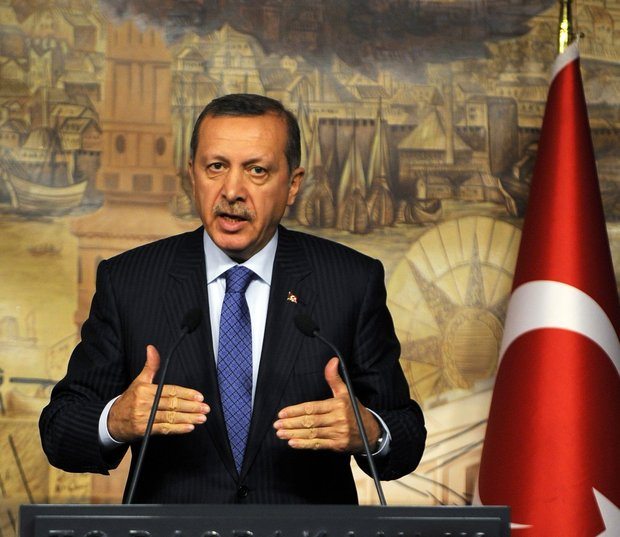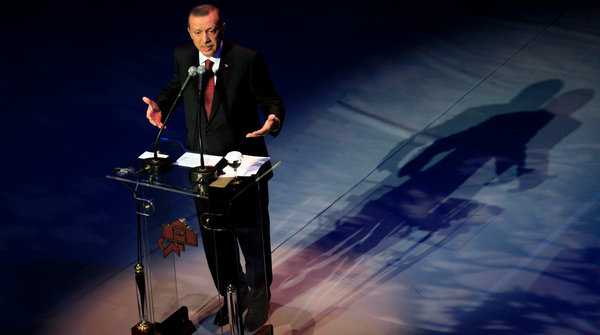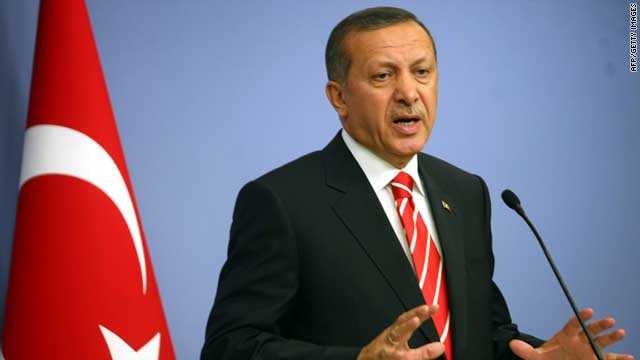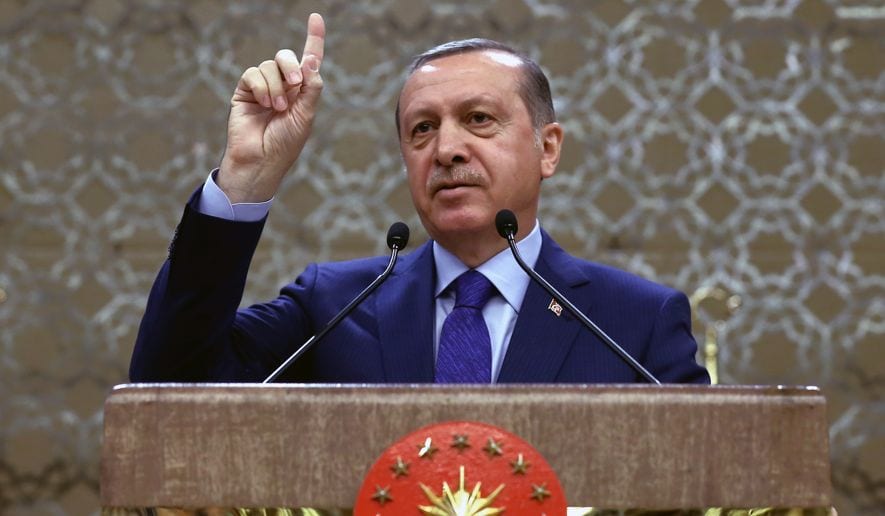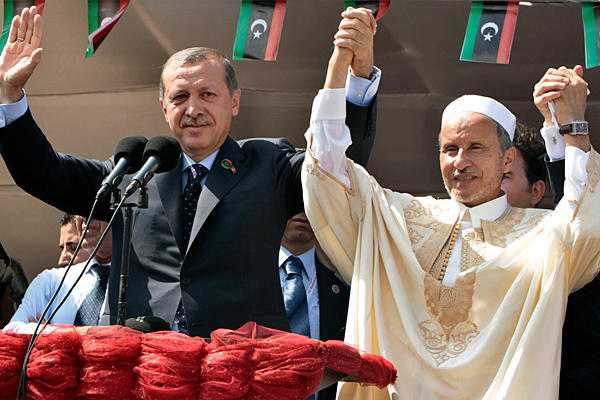By Huda al Husseini
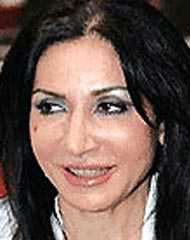
Non-Arab regional leaders are seeking to win over the Arab street, for they can clearly see that Arab public opinion is taken by their stances, and they are therefore playing on their sentiments and frustrations. The Arab street is burnishing the image of these non-Arab regional leaders abroad, and helping them to extend their influence.
Turkish Prime Minister Recep Tayyip Erdogan is following in the footsteps of Iranian President Mahmoud Ahmadinejad. The latter attempted to “hijack” the Arab street prior to the “Arab revolutions,” and when these revolutions broke out he claimed that they were inspired by the Islamic Revolution in Iran. As for Erdogan, he is trying to seize the opportunity and “harvest” the enthusiasm of the Arab street at the height of the Arab Spring, before the onset of the revolutions’ winter, particularly as nobody knows how long the Arab Spring will bloom.
The Arab street is bestowing power upon these leaders, who are playing on their dreams and speaking about the region’s prosperous future. However the Arab street is like mercury; it is impossible for any leader to grasp it firmly. The Arab street is fickle, and so it turns its back on leaders as quickly as it [previously] rushed to adore them. What happened to the power or influence that Ahmadinejad believed the Arab street had granted him? He used this to quell the demonstrations staged to protest the allegedly rigged presidential elections that brought about his re-election. As a result of this, he lost the Iranian street, whilst the Arab street turned its back on him.
The power that Erdogan obtained from his recent tour [of the Middle East] prompted him to threaten Greek Cyprus, and begin to proceed with exploring oil and natural gas surveys in the waters off northern Cyprus. Erdogan continued issuing threats, but at the same time he told the United Nations [U.N.] and the [Greek] Cypriot leadership that his country is no longer prepared to accept the concessions previously accepted by Ankara with regards to the reunification of Cyprus, in accordance with the U.N.’s 2004 plan. Turkey has said that it will not accept anything less than the recognition of two states in Cyprus. Turkey has also warned the European Union that it will not accept any solutions after [Greek] Cyprus takes over the EU presidency early next year.
In mid-March last year, Turkish Foreign Minister Ahmet Davutoglu stressed that we must protect “the territorial integrity” of our countries and region, however he did not once mention Cyprus or the Kurds.
Erdogan is now seeking to place Turkey as a leading supporter of the Palestinian cause, and he wants the “Arab Spring” to view Ankara as a supporter and role model, stressing the need for firm Turkish – Arab unity. He is also planning to establish strategic cooperation between Turkey and Egypt.
The preparation for such cooperation was clear in the size of the delegation that accompanied Erdogan during his tour of the Middle East. The Turkish delegation was made up of 6 ministers, and around 200 Turkish businessmen, which represents a clear signal that Turkey is determined to investing heavily in the region. In 2010, the Turkish trade with the Middle East and North Africa [MENA] amounted to 30 billion dollars, and constituted 27 percent of Turkish exports, whilst more than 250 Turkish companies have invested a figure totaling $1.5 billion in Egypt.
We must acknowledge that despite Ahmadinejad’s attempts to win over the Egyptian street by waging a war of words with Mubarak’s regime; he failed to tempt Egyptian public opinion to support Iran. Despite this, Tehran did establish strong relations with the Muslim Brotherhood and other Egyptian Islamists, and there is an Iranian street named after Khaled Islambouli [the Islamist Egyptian army officer who assassinated President Anwar Sadat in 1981]. As for Erdogan, the Turkish state model has been extremely popular in Egypt, namely an Islamist party in power (Erdogan’s Justice and Development party), under a secular constitution. Although the army does enjoy a strong presence in Turkey, it has returned to its barracks, and this is not to mention the economic boom being witnessed by the country.
Yet the problem with Erdogan is that he is not pursuing fixed foreign policies, and a quick review of his recent policies casts doubts on his commitment to these.
Erdogan warned of the consequences of invading Libya, insisting that if there was going to be regime change; this must happen from within, not through foreign intervention. Turkey had billions of dollars invested in Libya, whilst more than 20,000 Turkish laborers were evacuated within days [following the outbreak of protests]. Although Turkey is a member of NATO, it strongly condemned UN resolution 1973 [which formed the legal basis for military intervention in the Libyan civil war]. However after all of this, when the Gaddafi regime was overthrown, Erdogan welcomed the rebels with open arms.
Turkey, according to the Davutoglu policy, can say that it has “zero problems”, because economy and trade take priority. However, this policy collapsed and led to conflict with Israel, whilst the Arab revolutions have caused Ankara to amend this policy. This method (of amending the “zero problems” foreign policy) may be repeated with regards to Turkey’s new “open” policy.
Yet, this amended policy did not succeed with Syria, as relations between the two countries were undermined after Syria neglected Turkey’s call for it to cease the military campaign against civil demonstrators, something that stripped Ankara of its position as a “mediator”. Syria is the second country, after Israel, which has stripped Turkey of its mediation position.
In the framework of the “zero problems” policy with its neighboring countries, Ankara acted to consolidate its political and trade ties with Syria. Erdogan developed friendship with Syrian President Bashar al-Assad, and established political and economic ties with once hostile neighboring states, however these neighboring countries have returned to a state of hostility with Ankara after Erdogan ran out of patience and despaired of al-Assad taking his advice, ending the brutal campaign against unarmed Syrian protesters, and implementing the required reform. However it may not be Erdogan’s fault that Turkey’s “zero problems” policy towards Syria has failed, particularly as keeping promises has never been the Syrian president’s strong-suit. Indeed when Assad approved the political pluralism law requested by the Syrian opposition, he declined to sign this into law until the term “participation in rule and government” was removed.
Last Sunday, in an interview with CNN, Davutoglu stressed that Turkey’s “zero problems” foreign policy had only failed in Syria, meaning that relations with Iran are good.
In his book “Strategic Depth” Davutoglu stressed that Turkey is now a key player in the Middle East, saying that “this is our homeland.” To put this into context, Davutoglu drew up a new equation, namely that neo-Ottomanism plus Turkish nationalism plus Islam equals the New Turkey.
This neo-Ottomanism has brought Turkish influence into the Arab world and the Balkans, whilst Turkish nationalist ties extend to Central Asia. As for Turkey’s Islamic links, this extends from Morocco to Indonesia. Therefore, and this is more significant for Davutoglu, he sees the partnership between Turkey and Iran as something equal to that between France and Germany [in Europe]. In light of Davutoglu’s conception of this alliance [with Iran], we can understand the relationship between Turkey and Brazil, and the position that Brazil adopted in the UN Security Council last year against Washington, London and Paris with regards to the Iranian nuclear program.
Syria has close relations with Iran, a situation that placed Ankara in an awkward position, and this may explain the reason why Erdogan ran out of patience with al-Assad. Turkey views Iran as the golden gate to Central Asia, and perhaps to the Gulf region as well, not to mention the implementation of Davutoglu’s equation.
Will Turkey’s long-term ambitions end up meeting the same fate of Iran’s long-term ambitions? Turkey is now exploiting the [Arab] feelings of hostility towards Israel with the aim of gaining credibility (Erdogan may have downgraded diplomatic relations with Israel but he did not sever them entirely). Indeed Turkey wants its crisis with Israel to continue in order to reap even greater political capital in the Middle East. Turkey believes that America will require it to play a greater role in the Middle East, particularly with regards to managing conflicts in the region, from Syria to Egypt to Iran. In addition to this, after the weakening of the Syrian regime in the region, Turkey is seeking to play a role in Iraq, and perhaps take up the mediation role between Washington and Tehran. Turkey took the initiative on 4 September when it officially approved the installation of an early-warning radar on its territory as part of a U.S.-led NATO strategic missile defense system. This may complicate Turkish-Russian relations, yet at the same time, it is a Turkish signal to the U.S. that Washington needs Ankara. This also serves as a signal to Tehran that Ankara is ready to play a mediation role between Tehran and Washington. This may also serve as a signal to Israel, particularly as Iran, saw the approval of this early-warning radar system as a defense of Israel.
Does this Turkish measure hit the mark? So far, Erdogan has lost two battles, the first when Syria declined to listen to his advice, and the second when Israel declined to offer Turkey an apology [for the deaths of Turkish citizens killed by Israeli forces on the Freedom Flotilla].
There are those in Turkey who have begun to warn [against Turkey’s new policies], noting that there are more Azerbaijani expatriates in Turkey than there are Azerbaijani’s at home, as is the case with Turkey’s Armenian Albanian, Bosnian, and Kurdish communities. These all represent potential powder-kegs.
(Published in the London-based Asharq Alawsat on Sept. 24, 2011. Huda al Husseini is a prominent Lebanese writer.)

